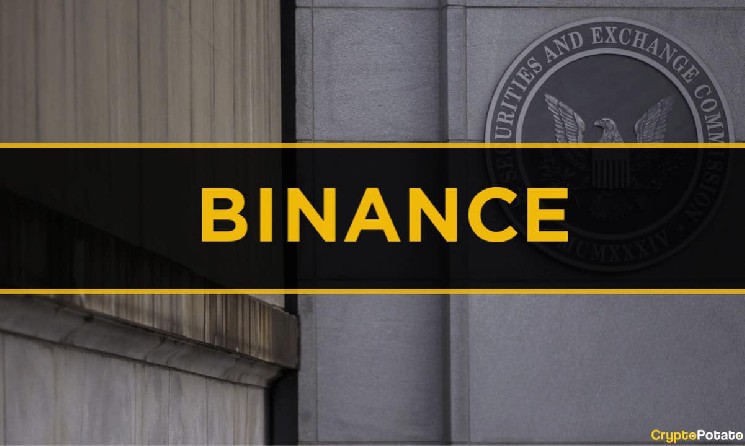What Will Happen to Binance if SEC Manages to Kill BUSD: Experts’ Take

Since being embroiled in a regulatory tussle, BUSD’s market cap went on a steep downward spiral. Since hitting an all-time high of $23.04 billion in November 2022, the market cap of the once-major stablecoin declined by more than 60% to $9.17 billion at the time of writing.
The Paxos situation is indicative of the larger picture of crypto exchanges under assault from the United States Securities and Exchange Commission (SEC). Uncertainty is looming over the stablecoin industry. Despite the fact that Binance does not issue BUSD, the stablecoin is still critical to its ecosystem.
Implications of Crackdown
Adam Cochran believes the SEC suggesting Binance is an unregistered securities exchange on the grounds BUSD is unregistered security is “brutal 4D chess.” He further speculated that Binance has two options – to settle or be open to discovery by a US agency. The former scenario will set a “soft precedent” for the SEC to bully other crypto exchanges in the country.
“If they settled it would block the Voyager deal for sure, and result in a penalty and likely industry exclusion in the US for execs (takes out their market-making entity too?) But would also be ‘soft precedent’ to bully other US exchanges.”
On the other hand, the latter scenario could prove more damaging for Binance. While speaking with CryptoPotato, David Kemmerer, co-founder and CEO of CoinLedger, stated,
“If BUSD is determined to be a security by the regulator, Binance will be subject to additional oversight and regulations over the stablecoin. The crypto exchange would need to comply with stringent SEC rules to issue BUSD in their platform.”
Paxos categorically disagreed with the SEC staff, saying that BUSD is not a security under federal securities laws. A similar sentiment is echoed by many industry experts that the BUSD issued by the firm is not an “investment contract” as per the Howey test due to the lack of expectation of any sort of profit. But it is also important to highlight that the Securities Act of 1933 includes more than 30 features that define security.
While Paxos has complied with the NYDFS’ order to halt the minting of new BUSD, Binance’s chief CZ said the exchange will continue to support BUSD. With the stablecoin being a core component of Binance’s business, its crackdown is expected to hurt the overall bottom line of Binance, added Kemmerer.
If the SEC manages to kill BUSD, the implications are many. For one, such a move could “embolden regulators to target other stablecoins in the future.” According to Mohammad Taher Khayami, COO of Dubai-based iTeller, a significant contraction in the stablecoin market could transpire as users become increasingly wary of using these tokens for fear that they could be shut down at any moment. He added,
“This, in turn, could lead to a decline in liquidity and trading volumes across the cryptocurrency market, which would be bad news for Binance and other exchanges that rely on stablecoins to facilitate trades.”
Will the Blow be Fatal for Binance?
Richard Mico, US CEO and Chief Legal Officer of Banxa, said that the SEC’s action against BUSD could be an indirect move to penalize “offshore” crypto businesses such as Binance rather than the stablecoin project itself.
“The SEC continues cracking down on a number of different elements of the crypto industry, with many concerned that the regulatory body is regulating by enforcement rather than through a clear regulatory framework.”
While the setback for BUSD will have a ripple effect on Binance, many still believe it will bounce back from the latest setback as the crypto exchange has a strong track record of adapting to changes in the market. The latest blow may not turn out to be fatal.






 Bitcoin
Bitcoin  Ethereum
Ethereum  Tether
Tether  USDC
USDC  Dogecoin
Dogecoin  TRON
TRON  Cardano
Cardano  Bitcoin Cash
Bitcoin Cash  Chainlink
Chainlink  LEO Token
LEO Token  Stellar
Stellar  Litecoin
Litecoin  Hedera
Hedera  Monero
Monero  Dai
Dai  OKB
OKB  Cronos
Cronos  Ethereum Classic
Ethereum Classic  Gate
Gate  VeChain
VeChain  Cosmos Hub
Cosmos Hub  Algorand
Algorand  KuCoin
KuCoin  Stacks
Stacks  Tether Gold
Tether Gold  Zcash
Zcash  Theta Network
Theta Network  IOTA
IOTA  Tezos
Tezos  TrueUSD
TrueUSD  NEO
NEO  Ravencoin
Ravencoin  Polygon
Polygon  Decred
Decred  Dash
Dash  Zilliqa
Zilliqa  Qtum
Qtum  Synthetix Network
Synthetix Network  0x Protocol
0x Protocol  Basic Attention
Basic Attention  Siacoin
Siacoin  Holo
Holo  DigiByte
DigiByte  Status
Status  Nano
Nano  Enjin Coin
Enjin Coin  Ontology
Ontology  Hive
Hive  Waves
Waves  Lisk
Lisk  Pax Dollar
Pax Dollar  Steem
Steem  Numeraire
Numeraire  BUSD
BUSD  Huobi
Huobi  NEM
NEM  OMG Network
OMG Network  Bitcoin Gold
Bitcoin Gold  Ren
Ren  Bitcoin Diamond
Bitcoin Diamond  Augur
Augur  Energi
Energi  HUSD
HUSD